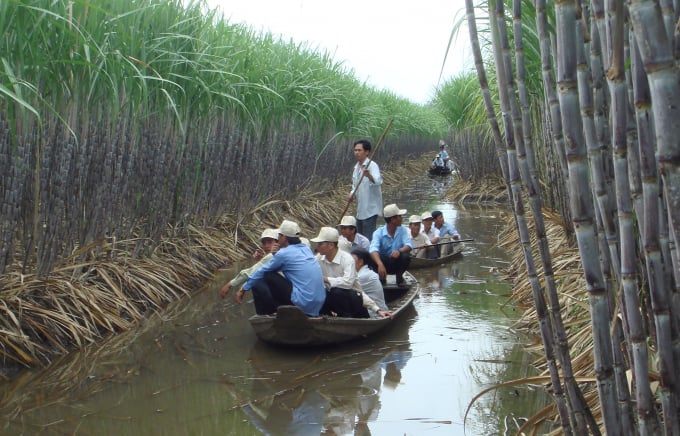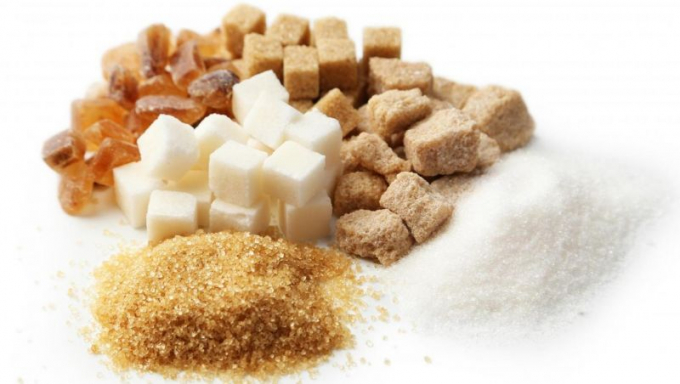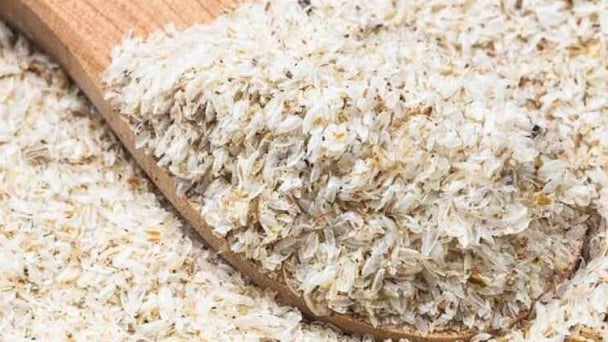May 29, 2025 | 03:58 GMT +7
May 29, 2025 | 03:58 GMT +7
Hotline: 0913.378.918
May 29, 2025 | 03:58 GMT +7
Hotline: 0913.378.918

The sugarcane growing area in Vietnam has decreased sharply due to the impact of sugar imported from Thailand.
On June 15, the Minister of Industry and Trade (MoIT) issued a decision on levying anti-dumping and anti-subsidy duties on a variety of cane sugar goods imported from Thailand. Accordingly, the anti-dumping tax on Thai sugar is 42.99% while the official financial tax is 4.65%. In total, Thai sugar imported to Vietnam was subsidized and dumped at 47.64%.
The aforementioned decision was based on the final investigation report from the Trade Remedies Authority of Vietnam under MoIT, which defined: the action of dumping and subsiding imported sugar were investigated; the domestic sugarcane incurred serious loss; there is a causal relationship between dumped and subsidized sugar imports and substantial injury to the domestic industry.
Thai sugar imported to Vietnam has been slapped with anti-dumping and anti-subsidy tariffs due to its serious impacts on the domestic sugarcane industry.
According to the Authority, the period of investigation (POI) defined the dumping margin for imported Thai sugar took place from July 1, 2019, to June 30, 2020. The investigation period to determine damage to the domestic manufacturing industry consists of 4 phases, lasting from July 1, 2016, to June 30, 2020.
In which, POI dumping margin reported that the number of imported sugar originated from Thailand was 867,154 tons, accounting for 94% of the total import. Thus, there was an absolute increase of imported sugar from Thailand with significant development speed while there was relatively substantial growth in imports of Thai origin compared to the total domestic consumption and the total domestic production. There is a price-squeezing effect between imported sugar originating from Thailand and similar domestically produced goods. There is a substantial reduction in the actual output, design capacity, and utilization efficiency of sugar factories. Sales market share, sales volume, revenue, net profit, and labor of Vietnam's sugar industry decreased sharply during the investigation period.

Thai sugar is subject to anti-dumping and anti-subsidy taxes as it has caused great damage to Vietnam's sugar industry.
The Authority also reported that the cane cultivation area in Vietnam was reduced seriously since the year crop of 2016/17 until now by 50% due to the plunge in the price of cane materials. The number of farmers joining in cane cultivation also went down rapidly over the past 4 years by 42 % as sugar factories were in trouble because they can not compete with the imported sugarcane in Thailand.
Also in the past 4 years, 12 domestic sugar factories have been closed, severely affecting the work of employers and the income of farmers.
The analysis shows factors such as sugar imported from other countries, an increase in sugar exports of the domestic sugar industry, a decrease in consumption or a change in sugar consumption trends, a change in technology, sales, and marketing strategies, and trade-restrictive practices and/or competition among domestic producers are not the cause of negative impacts on the Vietnamese sugar industry.
Therefore, Authority affirmed that the imported sugar under investigation originating from Thailand was the direct cause of significant damage to Vietnam's sugar industry.

(VAN) The import-export turnover between Vietnam and Singapore rose amid a trade rebound, with machinery, electrical equipment, and fuels making up the majority of the transaction value.

(VAN) Director General of the General Administration of Customs of China, Ms. Sun Mai Jun, has pledged to implement measures that will ease the import process for Vietnamese agricultural products.

(VAN) Although Vietnam is still increasing its coffee exports, the industry is currently in the process of determining market strategies in response to the U.S. imposition of reciprocal tariffs.

(VAN) With rising demand in Muslim-majority countries, Halal certification is becoming a critical passport for Vietnamese agricultural products seeking sustainable market access and consumer trust in the Middle East and Africa.

(VAN) Vietnam’s fruit and vegetable exports to the U.S. are rising sharply, and exporters are hoping that any upcoming reciprocal tariffs will be set at manageable levels.

(VAN) Despite meeting quality standards, Vietnamese rice bran exporters still face difficulties with administrative procedures under the new protocol.

(VAN) The U.S. is tightening import tariffs and origin inspections, requiring Vietnamese businesses to proactively prepare in terms of legal compliance, supply chains, and appropriate export strategies.